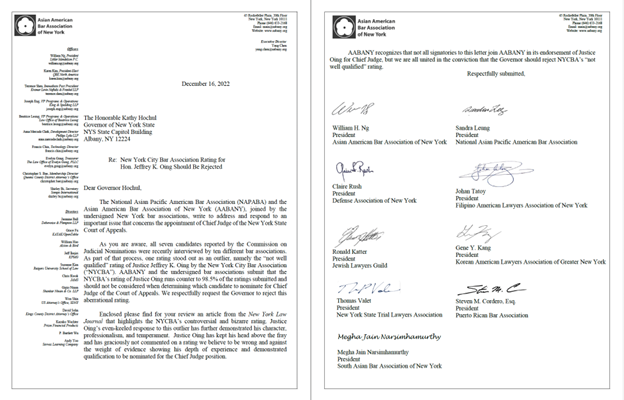
The United States Court of Appeals for the Second Circuit and the American Inns of Court announce the solicitation of nominations for the Twenty-Fifth Annual American Inns of Court Professionalism Award in the Second Circuit. Chief Judge Debra Ann Livingston of the Second Circuit hopes to be able to present the Award in New York at the Thurgood Marshall Courthouse, Courtroom 1703, 40 Foley Square, in Fall 2026.
The person chosen for this honor is a quintessential mentor who embodies the fundamental values of the profession to which the American Inns of Court is dedicated. The honoree is a senior lawyer who for a generation or more has guided younger practitioners in government, private practice, or public service, by word and by example. He or she is a “lawyer’s lawyer”— a master of the craft—whose life and work reflect civility, competence, and ethical behavior.
In short, they are seeking nominations of first-rate attorneys who have taught, supervised, and nurtured developing lawyers; and who, in doing so, have assured that the finest traditions of the Bar will be sustained.
Nominees should:
- have engaged in the practice of law for at least twenty years,
- be serving now as a lawyer in Connecticut, New York, or Vermont, and
- occupy a senior position in the office of a prosecutor, defender, government agency, private law firm, or other private entity.
Judges and full-time professors are not eligible.
Nominations should be in letter form and include sufficient information about the nominee to allow the committee to make a reasoned judgment. Additional letters of recommendation should be included in the package, such as by younger lawyers describing their associations with the nominee and the benefits conferred by the nominee’s teaching, mentorship, and example.
Nominations must be submitted no later than April 10, 2026, through the American Inns of Court Foundation online portal at www.innsofcourt.org/ProfessionalismAwards; copies of the nominations must also be e-mailed as a single PDF to Michael D. Jordan, Circuit Executive, at [email protected]. Nominations should be addressed to the attention of Hon. Carl E. Stewart, Chair of the American Inns of Court Awards Committee.
For more information, go to www.innsofcourt.org/ProfessionalismAwards or contact Cindy
Dennis at (571) 319-4703.
The honoree will be selected by a combined committee of the Second Circuit and the American Inns of Court.
Click here for the full solicitation letter for this award nomination.





